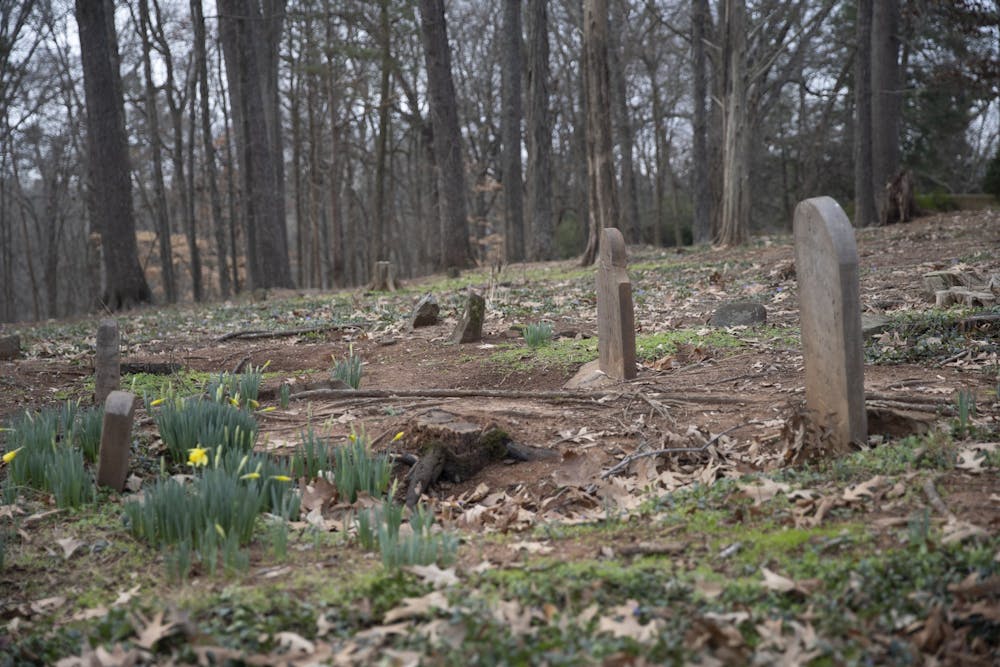The University Commission on History, Race and a Way Forward and the UNC Kenan-Flagler Business School are working on a project to honor the history of the approximately 120 enslaved people buried in the Barbee Cemetery at the Rizzo Center in Meadowmont.
Conversations about how to address the needs of the Barbee Cemetery began in October 2020. The project is part of a larger University effort to reckon with its relationship to slavery through telling stories of the University’s past and uplifting underrepresented voices.
“Our main goal is that we pull in the community and descendants of the enslaved people to advise us about what they want to see happen,” Dawna Jones, assistant dean of students and co-leader of the Barbee Cemetery Project, said. “We really want this to be a community-driven project.”
Kenan-Flagler wants to ensure that the Barbee Cemetery is respectfully and properly acknowledged, Dave Stevens, senior associate dean of business and operations at Kenan-Flagler, said in an email.
The business school expended about $5,000 in consultation with a design firm prior to the commission taking over the project, he said.
Jones said the commission has established a community advisory board with the NAACP, Orange County Community Remembrance Coalition, Black descendants of the Barbee family and other local community members. They plan to conduct research on the stories of the families buried at the cemetery, and the impact they left on the Orange County community.
Members of the advisory board include Lorie and Dolores Clark, longtime residents of Carrboro and Barbee descendants. Based on research the two have done, they believe some of their family members who were enslaved are buried in the Barbee Cemetery.
Dolores said her great-grandparents, Toney and Nellie Strayhorn, were the first Black family in Carrboro. They built a one-room log cabin where Dolores still lives today.
“We are delighted that the chancellor thought this was important work and wants to honor the memory and legacy of enslaved people,” Lorie Clark said. “We are actively participating on the commission to research the history of our descendants and make recommendations about what we would like to be shared with the community. And really, this is a way for us to be authentic in sharing our story.”



